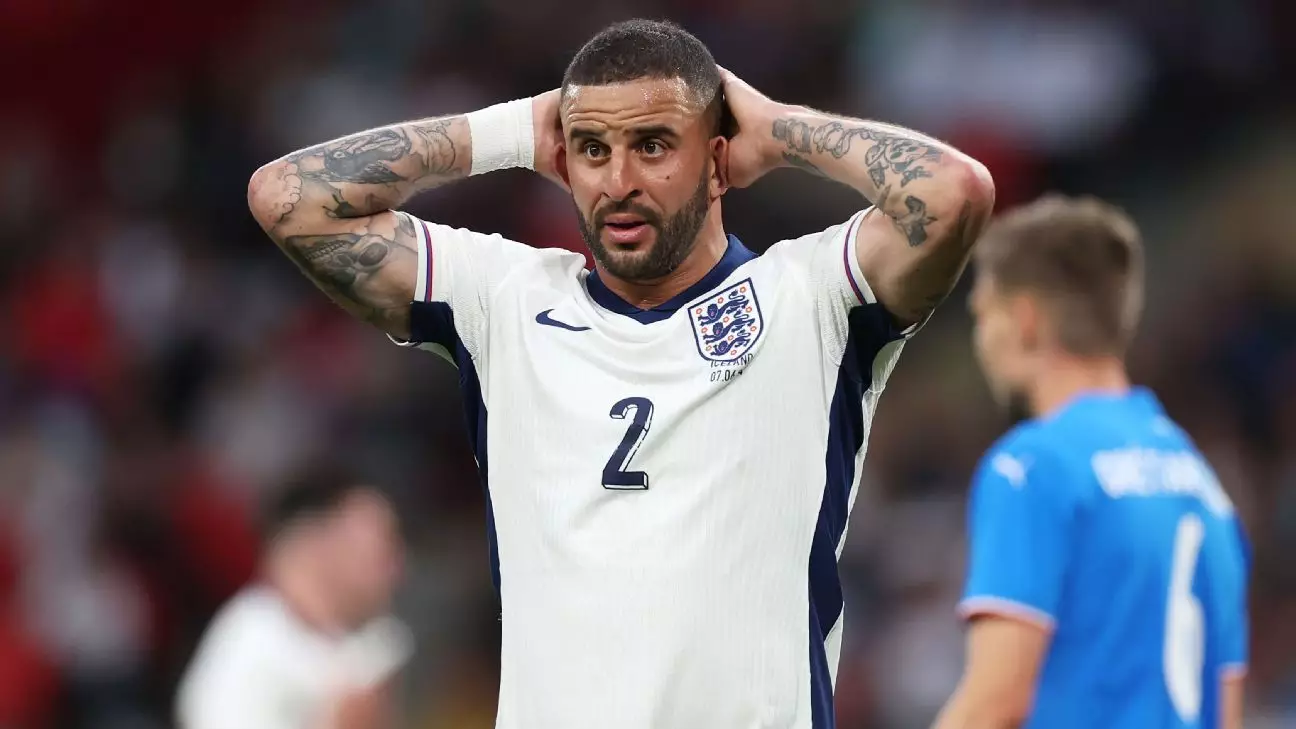In recent times, the demands of club and international football have placed players in a precarious position. Manchester City manager Pep Guardiola has become increasingly vocal about the need for improved communication between club managers and their national counterparts. The catalyst for his remarks was the unfortunate injury sustained by Kyle Walker while on international duty with England, which rendered him unavailable for City’s crucial match against Wolverhampton Wanderers. This incident accentuates a broader issue regarding the physical management of professional athletes who are pulled in multiple directions.
Guardiola’s frustration stems from a feeling of disconnect between the international teams and the clubs. Historically, interactions between national team coaches and club managers were more frequent and structured, allowing for a collaborative approach to player welfare. However, the current landscape appears to lack this dialogue, leading to confusion and potential mismanagement of players’ health. Guardiola recounted how during his playing days, national managers would reach out directly to their club counterparts to discuss players’ fitness levels. He lamented the fact that such communication has dwindled, making it difficult to manage players’ workloads effectively.
The ramifications of this lack of communication are palpable, as highlighted by Guardiola’s recollection of an incident involving John Stones. During his participation in an international friendly against Belgium, Stones returned to City with an injury that prevented him from contributing fully to crucial matches in the Premier League. Guardiola expressed a profound sense of disappointment, stemming from the fact that a friendly match—a game intended for preparation rather than competition—resulted in a significant setback for his squad. The absence of clarity and cooperation from the national side left Guardiola feeling “angry” and added unnecessary strain on his team during a critical juncture of the season.
His frustrations are not solely about player fitness; they also reflect the broader dynamics of the sport where club obligations sometimes clash with national pride. The tension between the dual responsibilities of player availability is a delicate balance that, if not managed well, can negatively affect both club performance and player career longevity.
As Guardiola prepares City for their upcoming Champions League match against Sparta Prague, his concerns extend beyond just Walker. With Kevin De Bruyne also recovering from injury without the immediate readiness to return, the need for careful management becomes even clearer. Guardiola’s remarks signal a call to action for both club and international managers to forge a partnership that prioritizes player health while still respecting the demands of international competition.
In a sport that has become increasingly commercialized and competitive, safeguarding players’ well-being should not be an afterthought. As the industry progresses, it is crucial for frameworks to be established that facilitate regular communication between club and national team coaches. Only through this collaborative effort can the well-being of players be secured, ensuring they remain fit and competitive on both fronts. Guardiola’s outspokenness introduces a vital dialogue that could lead to the reformation of how football values player management during international windows.

Leave a Reply